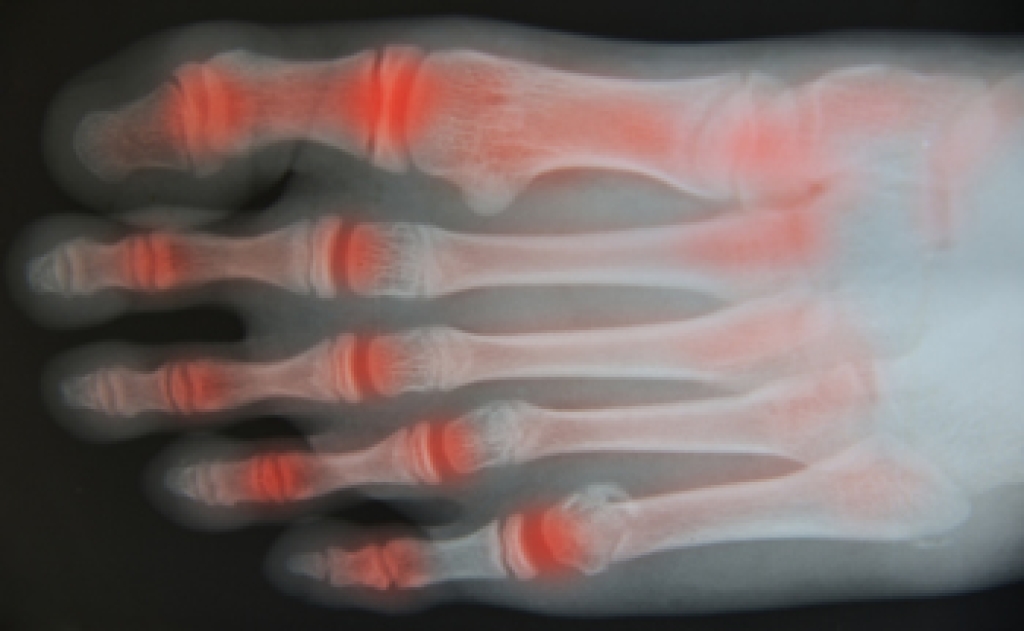
Gout is a painful form of inflammatory arthritis that affects men more often, frequently appearing in the big toe or forefoot. It is caused by elevated uric acid levels that form sharp crystals inside the joint. The affected area may look red, swollen, and warm, with skin that appears tight or inflamed. It often feels like sudden intense pain, burning, or extreme tenderness, sometimes starting at night and making walking difficult. Causes include genetics, kidney issues, and diets high in purines such as red meat and seafood, which are more common risk factors in men. A podiatrist can help from the start by evaluating symptoms, confirming the diagnosis through examination, imaging, and lab coordination when needed. Treatment may begin with inflammation and pain management, and activity modification, then move into long-term control, education, and prevention strategies. It is suggested that if you are experiencing sudden joint pain in the foot to schedule an appointment with a podiatrist for effective relief and management tips.
Gout is a foot condition that requires certain treatment and care. If you are seeking treatment, contact one of our podiatrists from Apple Podiatry Group. Our doctors will treat your foot and ankle needs.
What Is Gout?
Gout is a type of arthritis caused by a buildup of uric acid in the bloodstream. It often develops in the foot, especially the big toe area, although it can manifest in other parts of the body as well. Gout can make walking and standing very painful and is especially common in diabetics and the obese.
People typically get gout because of a poor diet. Genetic predisposition is also a factor. The children of parents who have had gout frequently have a chance of developing it themselves.
Gout can easily be identified by redness and inflammation of the big toe and the surrounding areas of the foot. Other symptoms include extreme fatigue, joint pain, and running high fevers. Sometimes corticosteroid drugs can be prescribed to treat gout, but the best way to combat this disease is to get more exercise and eat a better diet.
If you have any questions, please feel free to contact our offices located in Arlington Fort Worth, And Flower Mound, TX . We offer the newest diagnostic and treatment technologies for all your foot care needs.



